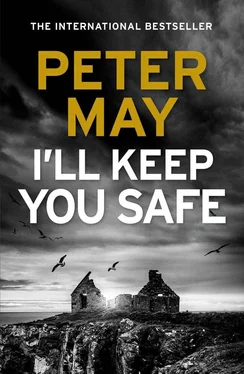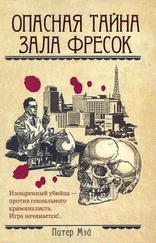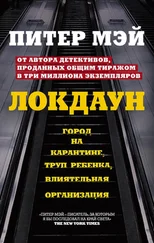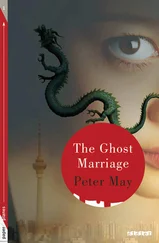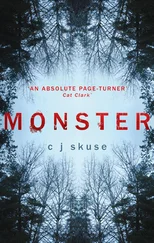There were several cars drawn in on the gravel around the front of the castle, and as soon as she stepped from her Jeep she heard, above the wind, the sound of loud music pounding from somewhere deep inside the building. She heard, too, whoops and shrieks of laughter tumbling down the stairs as she went through the entrance lobby. Past furled flags leaning up against the wall, the Stars and Stripes, a Union Jack. A stag’s head. A sculpture of dolphins leaping from water.
The polished wooden staircase curved around a half-landing, red flock wallpaper lurid in the light that spilled down from the first floor. The ground floor, by contrast, simmered in semi-darkness. The only light Niamh could see was along a corridor, beyond those rooms where fishermen gathered before and after sorties, and the boot room where they hung their wet waterproofs. She wondered where all the staff were. This was not the kind of clientele they would be used to.
As she climbed the stairs, she heard someone playing a piano. A mad, drunken ragtime, only faintly and incongruously discernible above the monotonously hypnotic voice of a rapper that rose above an endlessly repeating electronic refrain. Through an open doorway along a panelled hall she saw people with cues moving like shadows around a snooker table.
At the top of the stairs, beautiful people lay about on the sofas and armchairs of a TV room off to the right, the volume on a BBC-24 news bulletin turned up to an absurd level that almost hurt the ears. To the left an honour bar had been mercilessly assaulted. Bottles stood open next to a broken glass, spilled spirits stripping varnish from antique furniture. In a vast lounge, with two enormous fireplaces, a solitary figure played the grand piano. A beautifully tall, shaven-headed black model, chiffon gown barely concealing her bony ebony curves, emerged from the dining room. She had a bottle in one hand, and in the other a glass filled with some vividly coloured green drink. ‘There you are, darling,’ she said, as if they were old friends, and thrust the glass into Niamh’s hand. ‘Drink and be merry, for tomorrow we die.’
Niamh looked at the drink. There were slices of orange and lime floating in it along with the ice. ‘What is it?’ She sniffed and took a sip. It was both sweet and sour.
‘St Patrick’s Day Punch.’
Niamh almost laughed. ‘It’s not St Patrick’s Day.’
‘No, darling it’s the six-month anniversary.’ And she threw her head back and laughed as if she had said something uproariously funny. ‘You’ll love it! Green apple pucker and lemon-lime soda. It’s Lee’s favourite. Ever since he discovered a little Irish somewhere in his ancestry.’
‘I’ve got a long drive ahead of me. I shouldn’t drink.’
The model laughed again. ‘Darling, do you think I keep a figure like this by drinking alcohol? Lee’s been looking for you everywhere.’
Niamh took a long pull at the glass and welcomed the chill sweetness of this unexpectedly non-alcoholic punch. It had an odd flavour.
The model put her arm around Niamh’s shoulders, steering her into a sitting room at the front of the castle from which most of the noise was coming. The sound of music struck her like something physical. This was an elegant salon, hung with large oil paintings and a crystal chandelier. Bodies sprawled in various stages of undress across antique furniture, and Niamh felt as if she had wandered accidentally into the tableau of some Hieronymus Bosch representation of hell. The air was thick with smoke that hung in subdued lighting, acrid and heady.
Jacob Steiner emerged from the smoke, his habitual cigar in one hand, his favourite whisky soda in the other. From the flush of his cheeks, Niamh figured that it wasn’t his first. ‘Jees, honey,’ he said. ‘Where you been? Lee’s been getting all agitated, thinking you stood him up.’
‘I had to go back to Ruairidh’s parents’ house after the funeral. I came as soon as I could.’
‘You got some catching up to do, then, girl,’ he said. And as she took a sip of her drink he nudged it up with his own glass and she nearly choked on it. ‘Another glass for our widow,’ he shouted out. And she was shocked. Both to hear herself called a widow, when she had never even considered that that’s what she was, and at Jacob Steiner’s insensitivity in addressing her like that.
Someone took the empty glass from her hand and thrust another into it.
And then like a punch in the gut she heard the first familiar strains of the song that had meant so much to her and Ruairidh. That haunting, repeating piano refrain, a counter-melody played on the harp. And then the painfully sad falsetto of the singer who promised to keep her safe. Just like Ruairidh. How could anyone possibly know the significance of that song and those words? She realized, of course, that no one could. It was just one of life’s sick little ironies, designed to turn the knife in an open wound. As if God was not yet finished with her and wanted to inflict yet more pain.
‘There you are!’
She turned to find herself confronted by a wild-eyed Lee Blunt. Eyes glazed and dilated at the funeral were now filled with fire. He had to raise his voice and shout to be heard above all the promises of safety, oblivious to the tears that the music had brought to Niamh’s eyes. She took a stiff pull at her drink. It seemed less sweet and more sour than the last one.
‘Don’t know what you ever saw in that fucker!’ He had lowered his face so that his words were shouted directly into hers. She smelled something rank on his breath, recoiling from the smell of it, as well as from his words.
‘What?’
‘Leave it, Lee.’ She heard Jacob Steiner’s voice, only barely aware of him trying to pull Lee away. Blunt shrugged him off. They had been partying all afternoon and into the evening. Smoking, drinking, snorting, and God only knew what else. Niamh had seen him like this just once before, that afternoon in the pub in Shoreditch when he and Ruairidh had ended up on the floor, punching and kicking each other.
His face was inches from hers, and she seemed unable to back away as others crowded in around them, sensing conflict and drama above the blare of the music. ‘I’m glad he’s dead. Arrogant, shitty little fucker!’
Niamh stared at him in disbelief. ‘And all that sympathy in Paris? If that’s how you felt, what was all that about?’
‘It was about revelling in your grief. Seeing your tears first hand. Laughing behind mine. You can’t begin to know how much pleasure I took from your unhappiness, my little Niamh. Encouraging it. Stoking the fires of your loss so the embers would burn just a little hotter a little longer. Just so you’d know how it felt to have your life totally fucked up.’
‘It was your fault for not paying us. Ruairidh never did you any harm that you didn’t do to yourself,’ she shouted at him.
‘He lost me Givenchy!’ He screamed it in her face. ‘Givenchy! It should have been the pinnacle of my career. My life. And his little rant in the press took that away from me.’
Niamh’s breathing was so rapid she was close to hyperventilating. ‘You told me yourself that your own company would never have done so well if you’d gone to Givenchy.’
But he just shook his head vigorously. ‘Not the same. Not the same at all. Nothing was ever the same again after that. Never.’ And then a strange, sick smile spread across his face. ‘And as for Ranish... All that shit I told you in Paris about doing another collection.’ He pushed his face even closer. ‘I lied. I’ve got a deal with a company to supply me with the real McCoy. Real Harris Tweed. Not that soft, phoney, silky shit that you and Ruairidh made.’
Anger and hurt fuelled the power that Niamh found in the backward swing of her hand, directed then with full force across Blunt’s puce and contorted face. He staggered back with the weight of it, caught completely by surprise. He blinked in momentary disorientation, before hurling himself at her, spittle flying all around his mouth. Her glass was knocked from her hand, foaming green liquid spraying everywhere. And hands grabbed at Blunt from every side, restraining him from hitting her right back.
Читать дальше
